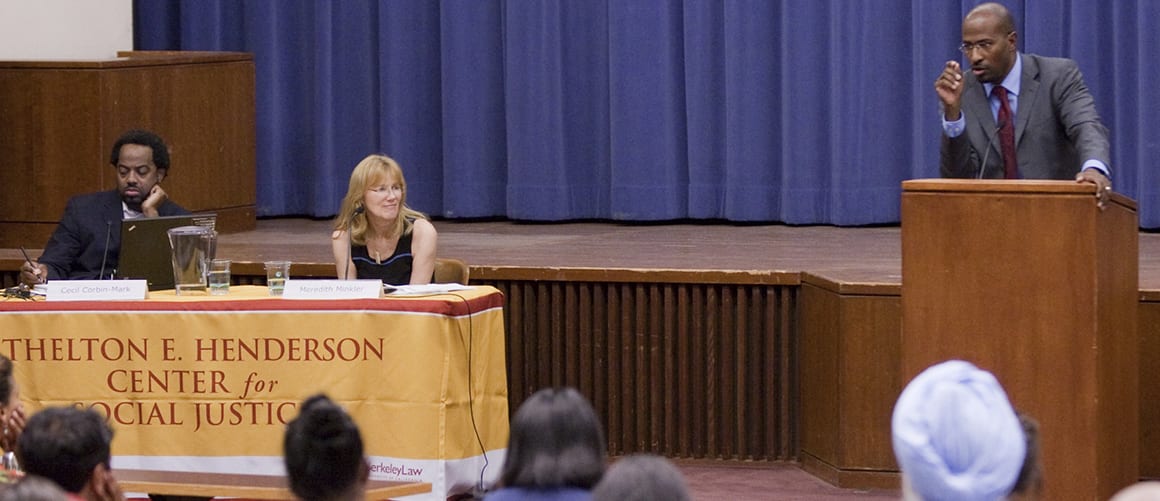
The Honorable Sonia Sotomayor. Professor Derrick Bell. Kamala Harris. The Honorable Cruz Reynoso. Van Jones. The Honorable William H. Fletcher. These luminaries are just a handful of the scholars, judges, and change agents the Henderson Center has welcomed to Berkeley Law to deliver the Hon. Mario G. Olmos Law & Cultural Diversity Memorial Lecture.
Named after the Honorable Mario G. Olmos (Class of 1971), this lecture celebrates legal minds who, like Judge Olmos, dedicate their careers to promoting equality and justice for people from diverse national, economic, racial, and cultural origins. These lectures gives us a chance to touch the frontlines of social justice law, exploring ideas like family-centered solutions to end mass incarceration, Indian religious practices and the First Amendment, and access to the political process and the development of leadership.
REMEMBERING JUDGE MARIO G. OLMOS
Born on July 24, 1946, in Nogales, Arizona, Judge Olmos graduated from Reedley Junior College and University of California, Berkeley where he was named to Phi Beta Kappa. At Boalt Hall he was an Ayer fellow and a Regents Scholar. Although he was nominated to the California Law Review, he chose instead to work in the community and to recruit students of color to Boalt.
Upon graduation from Boalt, Judge Olmos worked as an attorney at California Rural Legal Services. In December 1982, he was appointed to the Fresno County Superior Court, where he was elected presiding judge for three consecutive years. He also served with distinction on the California Judicial Council.
After his death, Judge Olmos’ family, friends, and colleagues established a trust to fund the Honorable Mario G. Olmos Law & Cultural Diversity Memorial Lecture.
Past Olmos Lecturers have included:
2017
– Hon. Abby Abinanti, Chief Judge Yurok Tribe and Co-chair of the Judicial Council’s Tribal Court-State Court Forum (CA)
Lecture Title: “Justice is Value Based: Is it Time to Re-Examine the United States’ Values?”